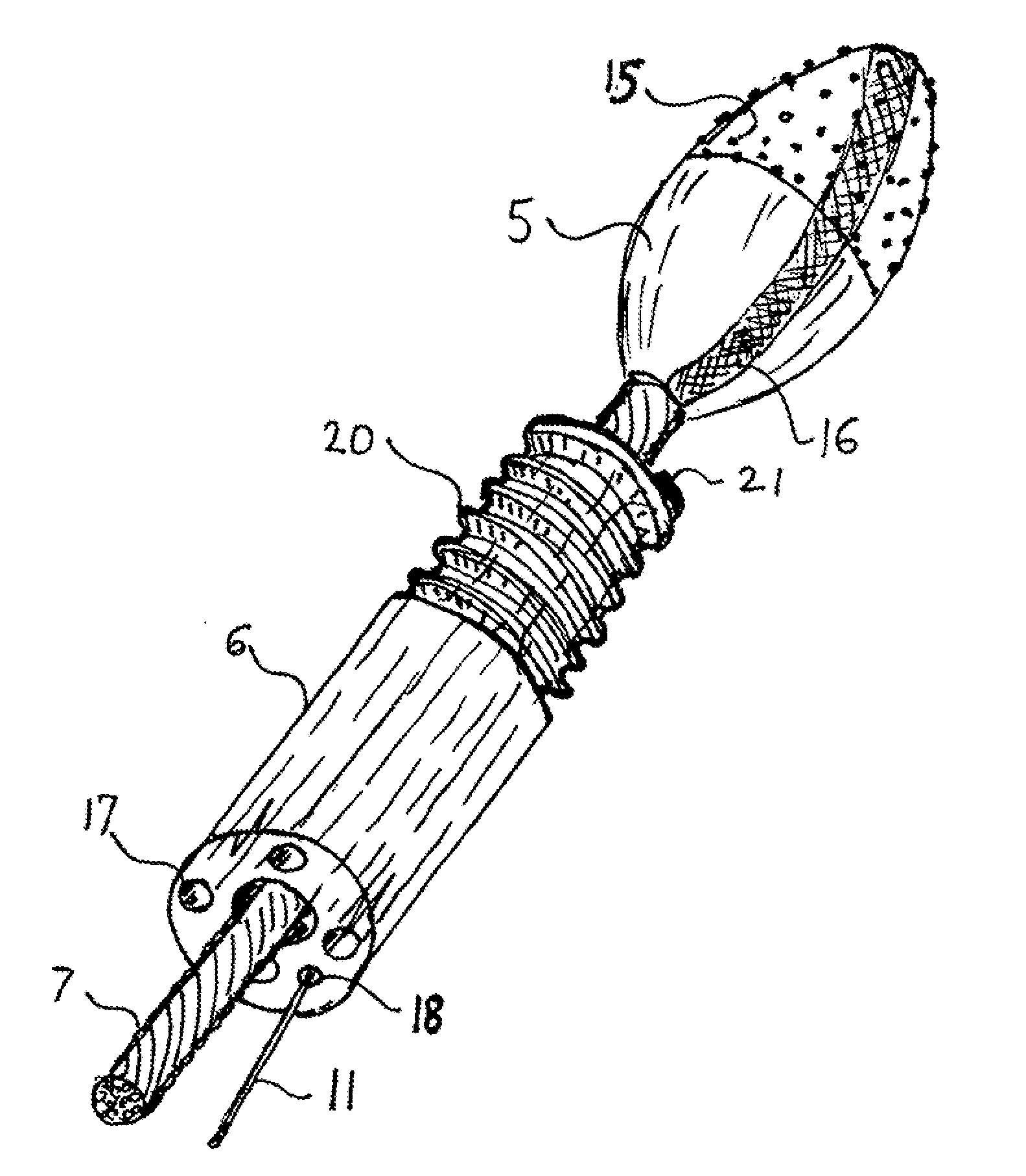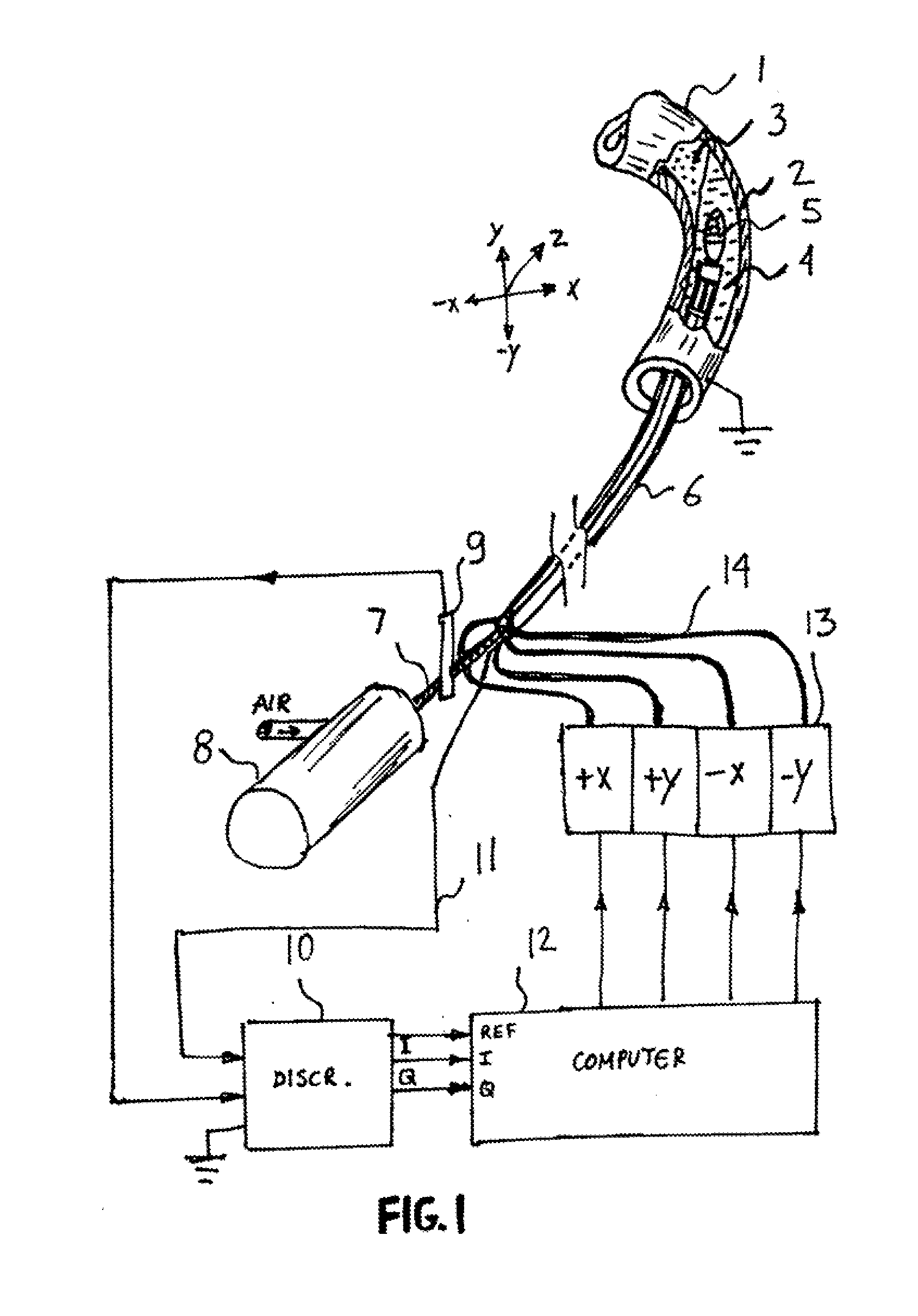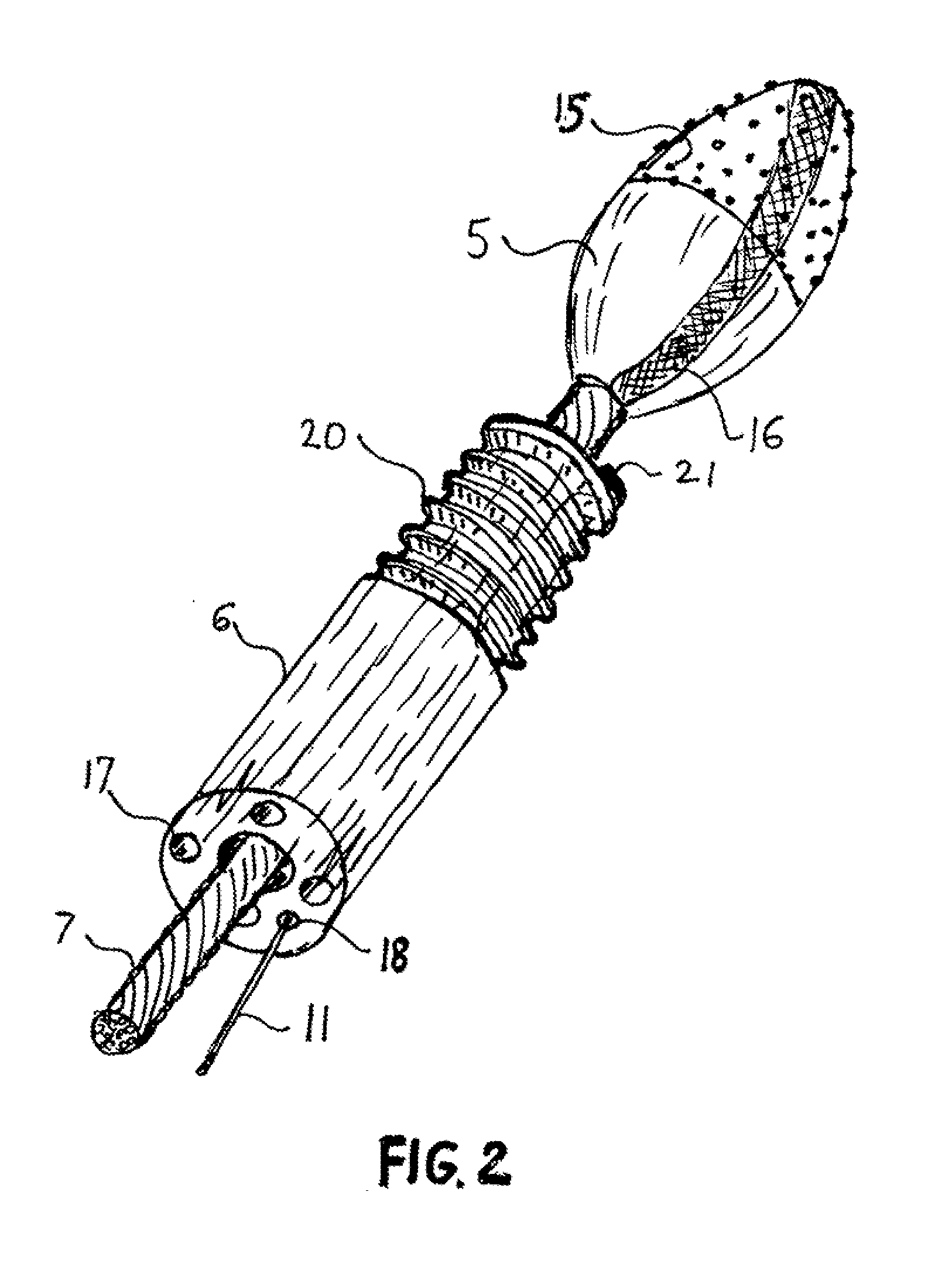Automatic atherectomy system
a technology of automatic atherectomy and atherectomy chamber, which is applied in the field of medical devices, can solve the problems of difficult to rely on such “self-direction” methods and complicated in-situ measurement of these properties, and achieve the effects of low conductivity, high permittivity, and high conductivity
- Summary
- Abstract
- Description
- Claims
- Application Information
AI Technical Summary
Benefits of technology
Problems solved by technology
Method used
Image
Examples
Embodiment Construction
[0016]Referring to FIG. 1, a blood vessel 1 having a wall 2 contains undesired plaque 3 as well as blood 4. An atherectomy tool 5 is introduced using catheter tube 6. The tool is driven by air motor 8 via flexible rotating cable 7. No further details of the atherectomy system are given, as these are well known commercial systems such as the Rotablator™ system. An electrical contact 9 measures the electrical impedance between cable 7 and the return path which is ground (the patient is electrically grounded). The discriminator 10 measures the complex impedance to ground by measuring the In-Phase current (I) and the Quadrature, or 90 deg out of phase current (Q). From these measurements the conductivity and permittivity of the tissue can be computed, based on the well known methods of electrical impedance measurements. A full explanation is given later. Based on the measured value, the type of tissue is determined by computer 12 and the catheter is automatically steered by hydraulic ac...
PUM
 Login to View More
Login to View More Abstract
Description
Claims
Application Information
 Login to View More
Login to View More - R&D
- Intellectual Property
- Life Sciences
- Materials
- Tech Scout
- Unparalleled Data Quality
- Higher Quality Content
- 60% Fewer Hallucinations
Browse by: Latest US Patents, China's latest patents, Technical Efficacy Thesaurus, Application Domain, Technology Topic, Popular Technical Reports.
© 2025 PatSnap. All rights reserved.Legal|Privacy policy|Modern Slavery Act Transparency Statement|Sitemap|About US| Contact US: help@patsnap.com



